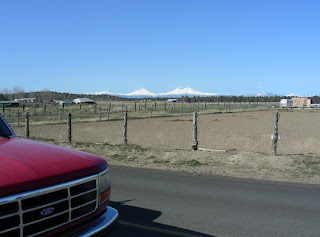If you missed my garden snail cleaning section pop into the garden tag before trying these wonderful recipes.Big John's Baked EscargotSERVES 6 (change servings and units)
Ingredients
1 (7 ounce) can escargot, drained (30-40 count)
36 whole mushrooms, medium sized
1/2 cup butter
4 garlic cloves, minced
2/3 cup parmesan cheese, grated
1 loaf French bread, thickly sliced
1 teaspoon herbes de provence
1/4 teaspoon rosemary
1/4 teaspoon savory
1/4 teaspoon sage
1/4 teaspoon salt
1/4 teaspoon onion powder
1/4 teaspoon black pepper
Directions
1 Rinse escargot in a colander in order to remove any sand and set aside.
2 Grind spices together in a mortar until fine.
3 Clean mushrooms and completely remove stems, making sure to create a place for escargot.
4 Place in a large skillet with 1 tablespoon of the butter and sauté over medium heat for 10 minutes, stirring often.
5 Remove from heat and place mushroom caps on escargot dishes stem side up.
6 Heat oven to 350 degrees F.
7 Chop half of the mushroom stems up and place in small sauce pan with remaining butter, garlic and spices, discard the rest.
8 Cook over medium heat for 3 minutes.
9 Place one escargot on each mushroom cap.
10 Spoon butter mixture over escargots and sprinkle with parmesan.
11 Place escargot dishes onto a cookie sheet and bake in oven for 15 minutes or until cheese is browned and sauce is bubbling.
12 Use bread for cleaning up the sauce.
Escargots de Bourgogne en meurette 375 milliliters red Burgundy wine
1 large shallot, peeled and minced
1 large clove garlic, peeled and minced
1 sprig fresh thyme
1 fresh bay leaf
150 grams small common mushrooms, thickly sliced
1-1/2 tablespoons butter
60 grams pearl onions, peeled
50 grams smoked bacon, 3-mm strips
1/2 teaspoon beurre manié
2 dozen large snails, well rinsed and drained
fine salt and freshly ground black pepper, to taste
1/2 tablespoon chives, minced
1. Place the wine, shallot, garlic, thyme, and bay leaf in a small saucepan over high heat. Bring to a boil, reduce heat, and simmer until reduced in volume by two-thirds.
2. In the meantime, fry the mushrooms in 1/2 tablespoon butter until they release their moisture. Drain and set aside. Blanch the onions in boiling, salted water until barely tender. Drain and set aside. Blanch the bacon in boiling water for 1 minute. Drain and set aside.
3. Add the beurre manié to sauce and stir to dissolve. Continue simmering the sauce until it starts to thicken. Add the snails and cook until heated through. Add the reserved mushrooms, onions, and bacon. Add the last tablespoon of butter and stir to blend. Season with salt and pepper.
4. Divide the mixture between individual serving dishes. Sprinkle the chives over the top and serve immediately.
Yield: 2 servings.
Ref: Georges Blanc, Ma Cuisine des Saisons, 1987, page 99.
Ragoût d’escargots forestière 2 tablespoons butter
1 shallot, minced
1/2 clove garlic, finely minced
125 grams wild mushrooms, 5-mm dice
1 small tomato, peeled, seeded, cored, diced
24 to 30 small snails, rinsed and drained
50 milliliters heavy cream
fine salt and freshly ground black pepper, to taste
1. Melt the butter in a small frying pan over medium-low heat. Add the shallot and sweat until soft.
2. Add the garlic and the mushrooms. Cook the mushrooms until soft.
3. Add the tomato and snails and mix. Add the cream. Cook until the cream reduces and the sauce is thick. Season with salt and pepper.
4. Divide between heated serving plates.
Yield: 2 servings.
Ref: Georges Blanc, Ma Cuisine des Saisons, 1987, page 98.
Poêlée d’escargots et cristallines de chou vert 1/2 small Savoy cabbage
95 grams butter
24 to 30 small snails, rinsed and drained
1 clove garlic, peeled, degermed, and minced
1 tablespoon finely minced flat-leaf parsley
fine salt and freshly ground black pepper, to taste
100 milliliters dry white wine
60 grams smoked bacon, cut into 2-mm strips
1. Preheat the oven to 80 °C (175 °F).
2. Separate 2 well-shaped outer leaves from the head of cabbage. Blanch the leaves in salted, boiling water for 2 minutes. Chill in an ice bath and dry well with absorbent paper. Melt 10 grams of butter. Line a baking sheet with parchment paper. Lightly brush the blanched cabbage leaves with butter and place on the baking sheet. Bake the leaves until they become translucent, about 1 hour.
3. Core the remaining cabbage and cut the leaves into fine shreds. Set aside.
4. Shortly before serving, melt 25 grams of butter in a small saucepan over low heat. Add the snails, garlic, and parsley. Cook for about 3 minutes. Season with salt and pepper. Add the wine and continue cooking for another 3 minutes. Remove the snails and keep warm in the oven.
5. Raise heat under the sauce and reduce greatly. Off the heat, whisk in 10 grams of butter. Keep warm.
6. In the meantime, cook the bacon in a small frying pan over high heat. Add 50 grams of butter. When melted, add the shredded cabbage. Season with salt and pepper. Cook the cabbage until well caramelized.
7. To serve, place a 7-cm ring mold in the center of each of the heated serving plates. Divide the cabbage between the rings. Spoon half the snails over each cabbage portion. Carefully remove the rings. Spoon the sauce over and around the cabbage and snails. Carefully place one of the baked cabbage leaves over one edge of each arrangement. Serve immediately.
Yield: 2 servings
Ref: Philippe Lamboley (ed), Saveurs & terroirs de Lyonnais, 1997,











































































